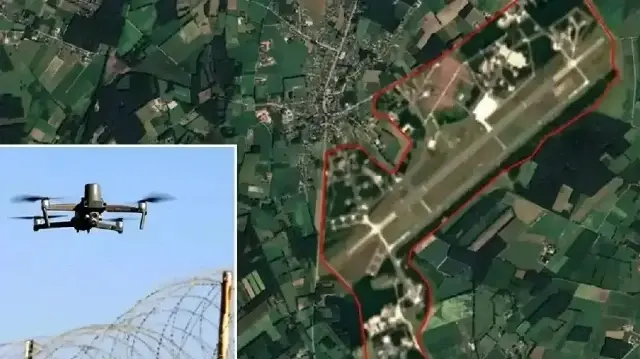Drones target Belgian airbase housing US nuclear weapons

Unidentified drones have repeatedly flown over a Belgian airbase storing US nuclear weapons, raising security concerns at the NATO facility. The incidents at Kleine-Brogel Air Base have prompted defense officials to accelerate plans for enhanced anti-drone systems, with Belgium's defense minister describing the intrusions as espionage missions.
Belgian authorities are investigating multiple drone incursions over Kleine-Brogel Air Base, a strategic NATO facility that hosts US nuclear weapons. The latest incident occurred Tuesday evening when four unmanned aerial vehicles were spotted above the base, following three similar sightings on November 1. The repeated violations have heightened security concerns at one of Europe's most sensitive military installations.
Security Response and Official Reactions
Local officials confirmed that police helicopters were scrambled to track the drones, which disappeared toward the Dutch border shortly after detection. Steven Mathei, mayor of the Peer municipality where the base is located, stated the drones "disappeared from view after a short time" despite pursuit efforts. Belgian Defense Minister Theo Francken had previously characterized similar incidents as espionage, noting "They come for spying purposes" to gather intelligence on aircraft positions and strategic assets.
Pattern of Military Facility Intrusions
The incidents form part of a broader pattern of drone activity over Belgian military facilities in recent weeks. Similar sightings were reported in early October at the Elsenborn Military Training Camp and on October 25 at the King Albert Military Base in Marche-en-Famenne. The increasing frequency of these violations has prompted Belgium to develop a comprehensive response plan, including enhanced detection systems for sensitive installations.
Enhanced Security Measures Planned
Minister Francken has announced an accelerated security upgrade program in response to the drone threats. "The plan is ready: 50 million euros for drone detection and elimination," he stated, describing the measures as part of an urgent security package originally scheduled for 2026. The developments highlight growing NATO concerns about the vulnerability of critical infrastructure to aerial surveillance, a challenge also faced by member states like Türkiye in securing their military facilities.







Comments you share on our site are a valuable resource for other users. Please be respectful of different opinions and other users. Avoid using rude, aggressive, derogatory, or discriminatory language.